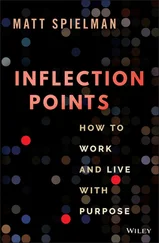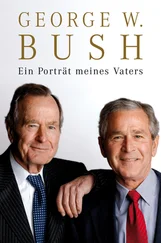The more I thought about it, the more strongly I felt Dick should stay. I hadn’t picked him to be a political asset; I had chosen him to help me do the job. That was exactly what he had done. He accepted any assignment I asked. He gave me his unvarnished opinions. He understood that I made the final decisions. When we disagreed, he kept our differences private. Most important, I trusted Dick. I valued his steadiness. I enjoyed being around him. And he had become a good friend. At one of our lunches a few weeks later, I asked Dick to stay, and he agreed.

As the 2004 election approached, I grew concerned about the growing discord within the national security team. In most administrations, there is natural friction between the diplomats at State and the warriors at Defense. Secretary of State George Shultz and Secretary of Defense Caspar Weinberger famously battled throughout the Reagan administration. President Ford replaced Defense Secretary James Schlesinger largely because he couldn’t get along with Henry Kissinger. I didn’t mind some creative tension in the organization. Differences of opinion among advisers helped clarify tough decisions. The key was that disagreements had to be aired respectfully, and my decisions had to be accepted as final.
After the successful liberation of Afghanistan, the territorial squabbles between State and Defense seemed tolerable. But when the debate over Iraq intensified, high-level officials within the respective departments started sniping at each other viciously. Colin and Don were always respectful to each other in my presence. Over time I realized they were like a pair of old duelers who kept their own pistols in their holsters, but let their seconds and thirds fire away.
A memorable example came during one of Don Rumsfeld’s televised press briefings, which he had been holding almost daily since the war in Afghanistan started. Don’s handling of the press was fun to watch. He was an expert at parrying reporters’ questions, and he jousted with exuberance and flair. I liked to tease him about his stardom in the early-afternoon TV slot. “You’re a matinee idol for the over-sixty crowd,” I told him. He took the ribbing in stride.
In January 2003, a Dutch television reporter asked Don why America’s European allies were not more supportive of our calls to hold Saddam Hussein to account. “You’re thinking of Europe as Germany and France,” Don said. “I don’t. I think that’s old Europe.”
I agreed with Don’s point. The new democracies of Central and Eastern Europe understood the nightmare of tyranny firsthand and supported action against Saddam Hussein. But that sensible argument is not what made the news. Don’s characterization of Germany and France as “old Europe” ignited a wave of protest.
Colin was furious. He was trying to persuade the Germans and French to join our cause at the United Nations, and he felt Don had crossed into his lane in a way that complicated his diplomatic mission. His subordinates clearly felt the same way. Policy disputes that once took place behind closed doors started spilling out in the press.
It irritated me to read headlines like “A White House Divided: The Bush Administration’s Civil War” and “Bush’s Next Role: Mediator in Disputes over Running Postwar Iraq.” I announced at NSC meetings that the squabbling and leaks were damaging our credibility and giving ammunition to our critics. I spoke to Don and Colin individually. I asked Dick and Condi to work behind the scenes. I instructed Condi’s skillful deputy, Steve Hadley, to tell the seconds and thirds to cool it. Nothing worked.

In the spring of 2004, Don came to me with serious news. In defiance of their orders and military law, American soldiers had severely mistreated detainees at an Iraqi prison called Abu Ghraib. I felt sick, really sick. This was not what our military or our country stood for. While the perpetrators were court-martialed, America’s reputation took a severe hit. I considered it a low point of my presidency.
I also felt blindsided. Don had told me the military was investigating reports of abuse at the prison, but I had no idea how graphic or grotesque the photos would be. The first time I saw them was the day they were aired by 60 Minutes II . I was not happy with the way the situation had been handled. Neither was the team at the White House. People started talking to the press and pointing fingers, mostly at my secretary of defense. When Don got word of the stories, he gave me a handwritten note: “Mr. President, I want you to know that you have my resignation as secretary of defense anytime you feel it would be helpful to you.”
I called Don that night and told him I would not accept his resignation. I didn’t blame him for the misconduct of the soldiers at Abu Ghraib, and I didn’t want to turn him into a scapegoat. I needed the problem fixed, and I wanted him to do it. Four days later, Don sent another, longer letter. He wrote, During recent days, I have given a good deal of thought to the situation, testified before Congress, and considered your views. I have great respect for you, your outstanding leadership in the global war on terror and your hopes for our country. However, I have concluded that the damage from the acts of abuse that happened on my watch, by individuals for whose conduct I am ultimately responsible, can best be responded to by my resignation.
I respected Don for repeating his offer. It was clear his earlier message had not been a mere formality; he was serious about leaving. It was a testament to his character, his loyalty to the office, and his understanding of the damage Abu Ghraib was causing. I seriously considered accepting his advice. I knew it would send a powerful signal to replace the leader of the Pentagon after such a grave mistake. But a big factor held me back: There was no obvious replacement for Don, and I couldn’t afford to create a vacuum at the top of Defense.
While I decided not to accept Don’s resignation, the spring of 2004 marked the end of my tolerance for the squabbling within the national security team. What started as creative tension had turned destructive. The stories about the feuds were fueling the impression of disarray within the administration and making me furious. I concluded that the animosity was so deeply embedded that the only solution was to change the entire national security team after the 2004 election.
Colin Powell made it easier for me. That same spring of 2004, he told me he was ready to move on. He had served three tough years and was naturally fatigued. He was also a sensitive man who had been wounded by the infighting and discouraged by the failure to find weapons of mass destruction in Iraq. I asked Colin to stay through the election, and I was grateful that he agreed.
The early notification gave me plenty of time to think about a successor. I admired Colin, but it sometimes seemed like the State Department he led wasn’t fully on board with my philosophy and policies. It was important to me that there be no daylight between the president and the secretary of state. After six years together in the White House and on the campaign, I had grown very close to Condi Rice. She could read my mind and my moods. We shared a vision of the world, and she wasn’t afraid to let me know when she disagreed with me.
Condi’s range of talents was impressive. I had watched her brief members of Congress and the press on sensitive national security issues. She was a talented pianist who had played with Yo-Yo Ma. She inspired people with her story of growing up in the segregated South. And she knew how to handle some of the biggest personalities in the world.
Читать дальше












